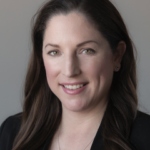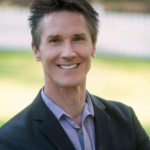
- Kim Kisner
- Business
- 06/27/2023
Working Toward Evolving ‘Sustainable Business’ to ‘Business as Usual’

A common challenge for every business committed to sustainability is recruiting, retaining, and developing the right talent.
Companies in Southeast Michigan and beyond are faced with the accelerating need to formalize their sustainability efforts, collect and analyze data, respond to government policies, answer to stakeholders, and more. And they need highly skilled people to lead all of these functions while tying them back to company strategy, operations, and business model.
That’s the driving factor for WholeWorks, SustainabiliD, and The Erb Institute, which work to educate current and future business leaders in sustainability.
Laura Asiala and the team at WholeWorks help business leaders, professionals, and functional experts accelerate their ability to connect the most important, or material, ESG issues in their organizations to achieve a return on investment and make a sustainable impact across the triple bottom line.
SustainabiliD – owned and led by Kerry Duggan – is a strategic advising firm focused on innovating to net zero. SustainabiliD offers leadership sustainability counsel, strategy, implementation, and communication services. In short, Duggan and her team help coach and shape sustainability leadership within businesses.
Erb Institute Managing Director Terry Nelidov and his colleagues are preparing the CSOs, CEOs, and sustainability leaders of the future.
SBN Detroit posed questions about educating current and future business leaders in sustainability to these three industry leaders to learn their perspectives.
Q: What will the impact of future chief sustainability officers have on businesses and society?
Asiala: I see the CSO’s responsibility as critical for a sustainable business—at least for the foreseeable future. Three key roles are distinct for this leader.
The first is the ability to reframe business opportunities and risks in environmental, social, and economic terms, as opposed to merely economic.
The second is the ability to connect the dots between ESG opportunities and risks to contribute to a return on invested capital—and that can either be focused on increasing that rate of return or strategically protecting it. Both are valuable. Without a return on invested capital that meets the expectations of investors, there is no sustainable business.
Finally, there is the ability to move seamlessly inside the organization, creating and encouraging a community of like-minded professionals that are seeded throughout the critical functions of the organization. These same attributes are also important in interacting with key stakeholders outside of the organization. This is much more about translation and influence than command and control.

Duggan: Maybe it’s time to get away from buzzwords that keep us in one “boutique” corner. Future leaders will need to be able to integrate across their organizations, sectors, and throughout society. The impact needs to touch every corner of the global economy; therefore, we need to think of these leaders as chief integration and innovation officers!
Nelidov: An enormous impact, two ways in particular.
First, a CSO should be the chief advocate—along with the CEO— for business and sustainability within the company. The CSO needs to have a clear voice with the CEO since the CEO is ultimately responsible for integrating sustainability into all aspects of company strategy and operations. The CSO is there to help the CEO and to ensure that sustainability is not left out of the priorities.
In terms of influence on society, the CSO plays a very significant role. The role of business in society keeps growing. Business is the most powerful force in the world. It’s the role of the CSO to harness that power for human rights, and positive social and environmental impact. Stakeholders – both internal and external – are asking companies to play an active role in social and environmental development, and that all points back to the CSO.
Q: What kinds of traits do you think ultimately make someone a strong CSO?
Asiala: It’s very important to have a trusted, respected leader and people on his/her team who can work

across and within the company to identify the most important ESG issues and translate them both into competitive strategy and positive impact – socially, economically, and environmentally.
That’s because integrating sustainability into an enterprise is not only the responsibility of a few select professionals, but the necessary work of a broad array of business functions: marketing and sales, business development, consulting, sourcing and supply chain, manufacturing, operations, and logistics, research and development, product development, IT, finance, and HR, among others.
More than ever, a critical success factor is to equip managers and functional experts to integrate sustainability into the areas of the business for which they already have responsibility and authority. A CSO needs to lead that effort and create an environment for ongoing learning, experimentation, and innovation. That’s more than making resources available—although it is that—it’s about creating a community of support, encouragement, and accountability around these issues.
Duggan: In many ways, you have to have the willingness to put your head down and do the work, not just talk about it. 21st-century leadership in sustainability means you need to understand the technical and financial feasibility of necessary work, but you also need a skillset in community engagement. I’m finding more and more movement in collaboration and creativity. Collaboration is a soft skill and a contact sport. It’s not easy but it’s absolutely necessary. The silos we spend our days in are not helping advance sustainability measures. We need more silo busters on the field!
Nelidov: They are, essentially, the same traits that business leaders need but with a focus on science and social/environmental impact. That’s why we created this dual-degree program at the graduate level. CSOs need the skills to be able to understand the impact of science on business, and the impact of business on society. They need to understand climate change and the business implications that come with it. They need a grounding in stakeholders, communities, and social justice.
CSOs also need strong people skills and relationship-building skills. They need to understand the changing expectations for business in society and the emerging role of business and nonprofit leaders. They need to get things done for sustainability by working across divides, with a broad range of individuals in different business sectors and communities who often have conflicting asks of companies.
We believe that every sector in society has a role to play in sustainability—engineers, managers, activists, scientists, policy experts, faith-based leaders, and many more, so we actively recruit students with varied educational backgrounds for the Erb Institute.
Q: Is there a strong interest in being coached in and potentially leading sustainability within businesses?
Asiala: Yes, there’s an interest and need for coaching, but I would say more—there is a need for practice! Managing one bottom line was hard enough. Managing three bottom lines is not just 3x harder, it’s more like x3 harder! Leaders and professionals need a ‘safe’ practice space, which is one of the reasons that we put a sustainable business simulation at the heart of our Strategic ESG program. That not only helps cement intellectual understanding but also accelerates the necessary emotional intelligence required to lead and implement sustainability strategies.
Duggan: Yes! There is an appetite for coaching, and we’ve grown our team to respond to this appetite.
One way we answer this is with the SustainabiliD CSO Bootcamp we just launched to help businesses and potential sustainability leaders across sectors understand the long- and short-term responsibilities of a CSO (or integration officer, as we think of it), the necessary soft skills, and the reality of working in and staffing sustainability offices (budgets, capacity, the political lay of the land, etc). We have two offerings: a two-day open-to-the-public boot camp hosted at Newlab in Corktown or private intensive training for corporations, either on or off-site.
Nelidov: Again, enormous! One thing to note is that at Erb we don’t set out to simply train students to become CSOs. We believe that all business leaders of the 21st Century have to embed social and environmental impact in their core business functions. That’s where Erb Institute alumni shine, with nearly 700 alumni working in 17 countries around the globe!

And is there interest among the students to do so? Yes, at both the graduate and undergraduate levels. We’ve been doing this for a quarter century. And up until three years ago, we did not offer an undergraduate program. More and more university students started asking – even advocating – for their own program, which we launched in 2020. Today, our undergrad Erb Fellows has 120 students and is now even larger than the graduate program. Gen Z has higher and higher expectations when it comes to sustainability within companies. They want business to lead the way and they want to be a part of that movement.
Q: What is the sustainability career path? Where does one start? And what is the ideal sustainability framework within a company?
Nelidov: There is no one career path; there are many. Some of our students go into a company and work for three to five years to fully understand the business model and success criteria and then move into sustainability. Another path is consulting. Many of our students go this route and work as a consultant with lots of companies across a range of industries to get broad exposure, then take that experience to one company at the enterprise level. A smaller number go into nonprofits, industry associations, or government agencies. Sustainability is broad, and so is the range of possible career paths. Whatever the path, companies are desperate for sustainability talent.
Duggan: As I say to my students, it’s not a linear path – and that’s A-OK if you consider what I’ve said about being able to work effectively across sectors. It’s everybody’s job in the company. Infusion of principals from the top down is critical. Some companies have just a CSO. Some have a department of two or three. But there are efficiencies and gains to be made in every department and by every individual within every company. The C-suite doesn’t have a monopoly on all the good ideas! We often say, “Listen first,” and that may mean asking your HR or janitorial teams what they think. This work impacts everyone, so bring everyone to the work.
Asiala: I agree with Terry and Kerry. Someday, it won’t be ‘a sustainable business.’ It will be just ‘business’, and everything else will be, well, unsustainable! Every function required to make a business successful is also required to make it sustainable. The number #1 question I am asked is, “How do I get a job in sustainability?” Wrong question. The question is “How do I make my job about sustainability.”
This is why the emphasis in most companies should be on integrating sustainability into the most critical places in their business, and why CSOs (and their team) need to be experts at ‘reframing’ and ‘connecting the dots’. Frameworks like the Sustainable Value Framework and the Sustainable Value Creation Map help do that.
Be sure to subscribe to our newsletter for regular updates on sustainable business practices in and around Detroit.
Kim Kisner
- All
- Business
- Community
- Education
- Events

Unique Monique Scented Candles, a Detroit-based business founded by Monique Bounds., aims to produce candles and household products with clean ingredients and local supply chains. What began as a personal hobby during college has evolved into a full-time venture producing coconut oil and soy-based candles made with essential oils and locally sourced materials. SBN Detroit interviewed Bounds about launching a sustainable product line, sourcing challenges in Michigan, and...

Eastern Market Partnership, in collaboration with the City of Detroit’s Office of Sustainability Urban Agriculture Division, has announced $240,000 in grant funding to support Detroit-based farmers and farmer collectives. The grants will advance food access, climate education, sustainable land use, and economic opportunity, with priority given to Black- and Indigenous-led farms, youth-led initiatives, and projects rooted in historically disinvested neighborhoods. The recipients – ranging from cooperatives and community...

Citizen Robotics is a Detroit-based nonprofit that advances the use of robotics and digital manufacturing in residential construction, focusing on improving productivity, sustainability, and long-term affordability. Best known for its early work in 3D-printed housing, it explores how alternative construction methods and new financial models can reduce material waste, lower lifetime operating costs, and enhance the resilience of homes. SBN Detroit interviewed Tom Woodman, founder and president of...







